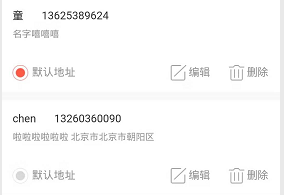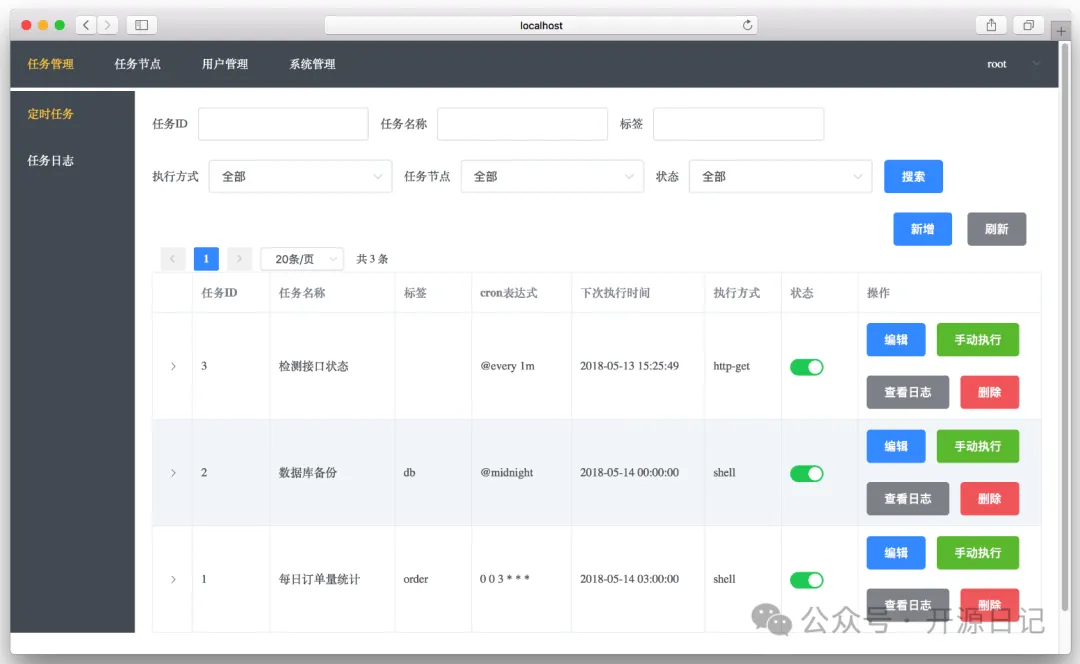1 前提准备
1.1 新建一个angular4项目
参考博文:点击前往

1.2 去zTree官网下载zTree
zTree官网: 点击前往

2 编程步骤

从打印出zTree对象可以看出,zTree对象利用init方法来实现zTree结构;init方法接收三个参数
参数1:一个ul标签的DOM节点对象
参数2:基本配置对象
参数3:标题信息数组
2.1 在index.html中引入相关js、css

<!doctype html> <html lang=\"en\"> <head> <meta charset=\"utf-8\"> <title>TestZtree</title> <base href=\"/\" rel=\"external nofollow\" > <meta name=\"viewport\" content=\"width=device-width, initial-scale=1\"> <link rel=\"icon\" type=\"image/x-icon\" href=\"favicon.ico\" rel=\"external nofollow\" > <link rel=\"stylesheet\" type=\"text/css\" href=\"./assets/zTree/css/zTreeStyle/zTreeStyle.css\" rel=\"external nofollow\" > <link rel=\"stylesheet\" type=\"text/css\" href=\"./assets/zTree/css/demo.css\" rel=\"external nofollow\" > <script src=\"./assets/zTree/js/jquery-1.4.4.min.js\"></script> <script src=\"./assets/zTree/js/jquery.ztree.core.js\"></script> </head> <body> <app-root></app-root> </body> </html>
2.2 在TS文件中声明jquery对象
declare var $ : any;
2.3 在TS文件中编写代码

import { Component, OnInit } from \'@angular/core\';
declare var $ : any;
@Component({
selector: \'app-root\',
templateUrl: \'./app.component.html\',
styleUrls: [\'./app.component.scss\']
})
export class AppComponent implements OnInit {
// setting = {
// view: {
// showLine: true,
// showIcon: true,
// fontCss: this.getFont
// },
// data: {
// simpleData: {
// enable: true,
// idKey: \'id\',
// pIdKey: \'pId\'
// }
// },
// callback: {
// onClick: this.onCzTreeOnClick
// }
// };
// zNodes = [
// {id: 1, pId: 0, name: \'1 一级标题\', open: true, iconOpen:\"assets/zTree/css/zTreeStyle/img/diy/1_open.png\", iconClose:\"assets/zTree/css/zTreeStyle/img/diy/1_close.png\"},
// {id: 11, pId: 1, name: \'1.1 二级标题\', open: true, font:{\'background-color\':\'skyblue\', \'color\':\'white\'}},
// {id: 111, pId: 11, name: \'1.1.1 三级标题 -> 博客园\', url: \'http://www.cnblogs.com/NeverCtrl-C/\'},
// {id: 112, pId: 11, name: \'1.1.2 三级标题 -> 单击\', click: \"alert(\'你单击了\')\"},
// {id: 12, pId: 1, name: \'1.2 二级标题\'},
// {id: 2, pId: 0, name: \'2 一级标题\'}
// ]
// getFont(treeId, node) {
// return node.font ? node.font : {};
// }
// onCzTreeOnClick(event, treeId, treeNode, clickFlag) {
// alert(treeNode.name);
// }
setting = {
data: {
simpleData: {
enable: true
}
}
};
zNodes = [
{id: 1, pId: 0, name: \'1 一级标题\'},
{id: 11, pId: 1, name: \'1.1 二级标题\'},
{id: 111, pId: 11, name: \'1.1.1 三级标题\'},
{id: 112, pId: 11, name: \'1.1.2 三级标题\'},
{id: 12, pId: 1, name: \'1.2 二级标题\'},
{id: 2, pId: 0, name: \'2 一级标题\'}
];
constructor() { }
ngOnInit() {
console.log($);
console.log($.fn.zTree);
$.fn.zTree.init($(\"#ztree\"),this.setting,this.zNodes);
}
}
2.4 在组件HTML中编写代码
<ul id=\"ztree\" class=\"ztree\"><ul></ul>
2.5 效果展示

3 zTree基本功能
3.1 不显示连接线
3.1.1 官方文档
不显示标题之间的连接线

3.1.2 编程步骤
在基本配置对象中指定showLine属性的值为false即可
setting = {
data: {
simpleData: {
enable: true
}
},
view: {
showLine: false
}
};
3.2 不显示节点图标
3.2.1 官方文档
去掉节点前面的图标

3.2.2 编程步骤
将基本配置对象的showIcon属性设为false即可

setting = {
data: {
simpleData: {
enable: true
}
},
view: {
showLine: false,
showIcon: false
}
};
3.3 自定义节点图标
3.3.1 官方文档
更改节点的图标

3.3.2 编程步骤
为treeNode节点数据设置icon/iconOpen/iconClose属性即可

3.4 自定义字体
3.4.1 官方文档
更改节点字体的样式

3.4.2 编程步骤
为treeNode节点数据设置font属性即可,font属性的值是一个对象,该对象的内容和style的数据一样

3.4.3 效果展示

3.5 超链接
3.5.1 官方文档
点击节点标题就会自动跳转到对应的url
注意01:click属性只能进行最简单的 click 事件操作。相当于 onclick=\”…\” 的内容。 如果操作较复杂,请使用 onClick 事件回调函数。

3.5.2 编程步骤
为treeNode节点数据设置url、click属性即可
技巧01:设置click属性时,属性值必须是一些简单的onClick事件
技巧02:设置target属性时,属性值有 _blank 和 _self
_blank -> 用一个新窗口打开
_self -> 在原来的窗口打开

zNodes = [
{id: 1, pId: 0, name: \'1 一级标题\', open: true, iconOpen:\"assets/zTree/css/zTreeStyle/img/diy/1_open.png\", iconClose:\"assets/zTree/css/zTreeStyle/img/diy/1_close.png\"},
{id: 11, pId: 1, name: \'1.1 二级标题\', open: true, font:{\'background-color\':\'skyblue\', \'color\':\'white\'}},
{id: 111, pId: 11, name: \'1.1.1 三级标题 -> 博客园1\', url: \'http://www.cnblogs.com/NeverCtrl-C/\', target: \'_blank\'},
{id: 113, pId: 11, name: \'1.1.1 三级标题 -> 博客园2\', url: \'http://www.cnblogs.com/NeverCtrl-C/\', target: \'_self\'},
{id: 112, pId: 11, name: \'1.1.2 三级标题 -> 单击\', click: \"alert(\'你单击了\')\"},
{id: 12, pId: 1, name: \'1.2 二级标题\'},
{id: 2, pId: 0, name: \'2 一级标题\'}
]
3.6 单击控制
3.6.1 官方文档
点击节点标题时触发相应的方法
技巧01: 在angular中可以利用这个用法来实现路由跳转

3.6.2 编程步骤
设置基本配置对象的onClick属性
技巧01:onClick属性值是一个方法的引用,我们需要自己编写这个方法
setting = {
view: {
showLine: true,
showIcon: true,
fontCss: this.getFont
},
data: {
simpleData: {
enable: true,
idKey: \'id\',
pIdKey: \'pId\'
}
},
callback: {
onClick: this.onCzTreeOnClick
}
};

编写onClick触发方法
onCzTreeOnClick(event, treeId, treeNode, clickFlag) {
alert(treeNode.name);
}
以上就是本文的全部内容,希望对大家的学习有所帮助,也希望大家多多支持。










暂无评论内容